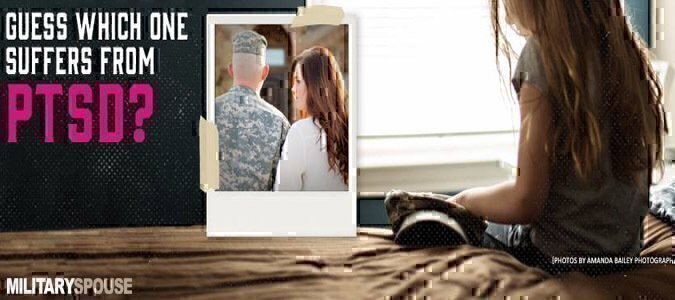“Screaming with tears running down her face, covering her ears, my ten year old daughter refused to go to the doctor, despite the fact that her temperature was steadily creeping above one-hundred. Until six months ago, we didn’t have this problem… that is until she spent every day for three months in the hospital with her father as he struggled for his life. Since his accident and my husband’s return home, we have had to dramatically change our lifestyle- not just for him, but for our ten year old as well. She was recently diagnosed with PTSD, Post-Traumatic Stress Disorder,” shares Marine Corps Spouse Liz Snell.
“My daughter exhibits many behaviors classic to PTSD: she avoids hospitals like the plague (we don’t even talk about them, or watch shows with hospitals in them), she has a hard time leaving her Dad’s side, and is easily angered. She is steadily getting better through her treatment program which includes: medication and play therapy.”
Explains Dr. Ingrid Herrera-Yee, 2014 National Guard Spouse of the year and a psychologist who specializes in PTSD “It’s the invisible wounds of war that are the most insidious. They usually come into our nation’s consciousness because something sensationalistic is reported on the news: someone struggling with the psychological toll of combat is thrust into the limelight when a tragedy occurs, a shooting, a suicide, and bases going on lockdown. But as a community we know all too well about these costs.”
According to the National Institute of Mental Health (NIMH), “PTSD develops after a terrifying ordeal that involved physical harm or the threat of physical harm. The person who develops PTSD may have been the one who was harmed, the harm may have happened to a loved one, or the person may have witnessed a harmful event that happened to loved ones or strangers.” And despite popular belief, the NIMH clarifies that “Not everyone with PTSD has been through a dangerous event.” This means that the spouses of those who have fought in combat and the children of service members may also develop PTSD as a direct result of a trauma that occurred to their loved one. Says Dr. Herrera-Yee, “The fact is, many of our families present with symptoms of Post-Traumatic Stress and Secondary Stress, the vicarious stress that family members can experience.”
In fact, Liz has experienced the repercussions. “Last year, I was in a different place emotionally. I couldn’t lift my head off the couch, I couldn’t stop crying, and I kept envisioning putting a gun to my head. On the outside no one knew what I was going through, not even my most trusted confidants. There were probably subtle differences in my behavior, but I was great at disguising what I was really going through.”
Liz continues, “It is often thought that PTSD is a disease only affecting service members. False: Post-Traumatic Stress Disorder can affect anyone after a traumatic event that is difficult for the mind to process, whether it occurred directly to the individual or to someone they were close with. In fact, the National Institute of Mental Health estimates that PTSD affects 7.7 MILLION adults nationwide. PTSD is non-discriminatory; age (including children), gender (though women are more prone), and ethnicity provide no basis as to whether or not someone is susceptible to PTSD.” Dr. Ingrid Herrera Yee provides the following: “Anyone who has gone through a life-threatening experience or who was witness to a traumatic event or events can have PTSD. Family members of victims can develop the disorder as well. About 5.2 million adults have PTSD during any given year. This is only a small portion of those who have gone through a trauma.”
Military spouse Ashley shares, “I’ve always had mental issues from a childhood incident but my PTSD wasn’t diagnosed correctly until after my husband deployed. A bad car accident left me unable to care for myself properly during the worst snowstorm in many years. That plus the stress of my husband being in a war zone reawakened my old trauma and pushed me into a crisis state and thankfully, into treatment. It has taken me years to come back from that nexus.”
Continues Liz, “Eventually I sought professional help. I waited so long because I was afraid of what others would think. I am a military spouse; we are supposed to be strong and independent, a super-wife, everything I thought I was not by seeking help. Opening up with others, led me to the understanding that I wasn’t alone. Within a week I had three other spouses reach out to me, they were feeling similar to what I had expressed.”









